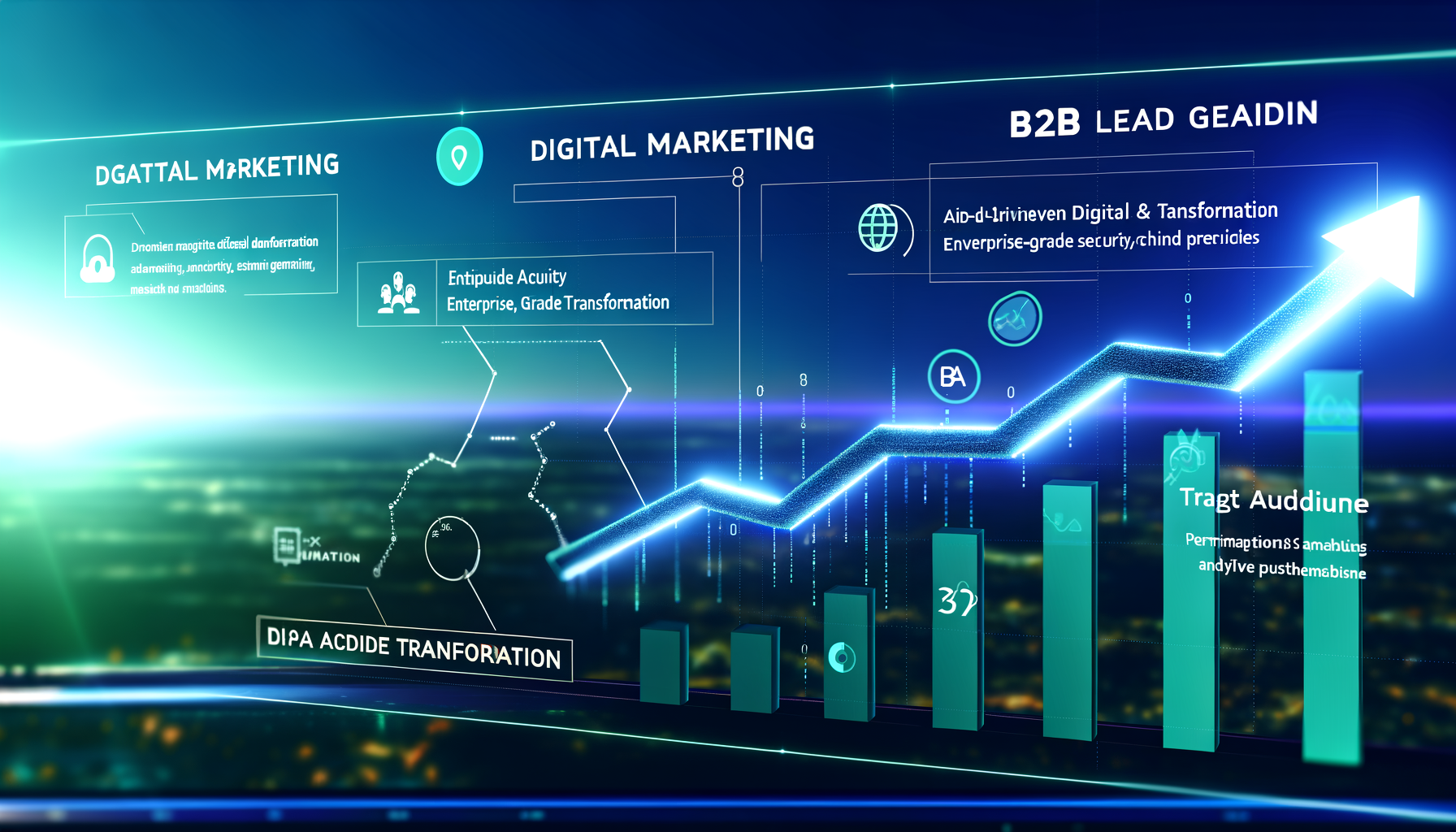In today's fast-paced digital landscape, leveraging data-driven digital marketing isn't just an option—it's a necessity. Did you know that businesses utilizing AI in their SEO strategies see a 25% increase in high-intent traffic within the first six months? This post will unravel how you can harness AI, optimize your content strategies, and drive measurable outcomes.
Understanding Generative Engine Optimization

Illustration of GEO process with AI-generated content components
Generative Engine Optimization (GEO) is reshaping how search engines index and rank content by using AI to generate and evaluate high-quality, relevant content. Unlike traditional SEO, GEO focuses on creating dynamic content that anticipates user intent and provides more personalized search results.
Implementing GEO involves leveraging AI tools that can predict search trends, adapt your content strategy, and ensure your materials are always relevant and optimized for the latest algorithms.
With Quicklook at the helm, businesses can seamlessly integrate GEO into their existing frameworks, leveraging our expertise in AI integration and digital marketing to stay ahead of the curve.
CALLOUT
What's GEO? It's the future of search, transforming AI SEO into a powerhouse of personalization and precision.
Adapting SEO for AI-Powered Search

Team analyzing AI-powered search engine algorithms
AI-powered search engines are more intuitive, focusing on user intent and contextual relevance. As a business, adapting your SEO strategies to these engines is critical for maintaining visibility.
Start with understanding the algorithms that power AI-based searches. This involves continual monitoring of search patterns and adjusting strategies to align with AI-driven metrics.
Quicklook's AI integration services can help you automate these processes, ensuring your content is optimized for AI-powered search engines like Google's BERT and RankBrain.
LIST
- •Conduct AI-focused keyword research
- •Utilize AI tools for content optimization
- •Monitor AI algorithm changes
Data-Driven Marketing's Role in AI SEO

Data analytics dashboard showcasing marketing metrics
Data-driven marketing is the cornerstone of an effective AI SEO strategy. By leveraging analytics, businesses can gain insights into customer behavior, optimizing content to match high-intent searches.
Tools like predictive analytics and machine learning models can help identify trends and forecast which content will perform best, aligning marketing efforts with customer needs.
At Quicklook, we provide comprehensive analytics solutions that transform raw data into actionable insights, empowering you to refine your marketing strategies and drive growth.
QUOTE
Without data, you're just another person with an opinion. - W. Edwards Deming
Building Your AI-Driven Marketing Stack

Diagram of AI marketing stack components
An efficient AI-driven marketing stack includes tools for content automation, customer engagement, and performance tracking. This stack helps streamline operations and enhances decision-making processes.
Key components involve CRM systems that utilize AI to personalize customer interactions and analytics platforms that provide real-time performance metrics.
Quicklook offers custom application development to create bespoke AI-driven marketing solutions that cater to your specific business needs, ensuring you stay competitive and agile.
LIST
- •AI-powered CRM systems
- •Automated content marketing tools
- •Real-time performance analytics
Case Studies and Real-World Applications

Graph showing upward trend in B2B lead generation
Consider the case of a Pacific Northwest enterprise that integrated AI-driven SEO strategies and saw a 35% increase in B2B lead generation within a year.
By implementing our custom AI tools, businesses have been able to reduce their time-to-market by 40%, enhancing their competitive edge in a crowded digital marketplace.
These success stories highlight Quicklook's commitment to delivering results through innovative, enterprise-grade solutions tailored to each client's unique needs.
CALLOUT
Real-world success: 35% more B2B leads with Quicklook's AI SEO solutions.
Frequently Asked Questions
QWhat is Generative Engine Optimization (GEO) and how does it impact AI-driven search results?
QHow can businesses adapt their SEO strategies to optimize for AI-powered search engines?
QWhat role does data-driven marketing play in enhancing AI SEO strategies?
Conclusion
AI-driven marketing and SEO strategies are essential for businesses looking to thrive in today's digital environment. From understanding GEO to building an AI-driven marketing stack, the path to success is through innovation and data-driven insights.
Future Vision
As AI continues to evolve, so too must your strategies. Embrace change and stay ahead with intelligent, data-driven approaches.
Schedule your AI audit with Quicklook.
